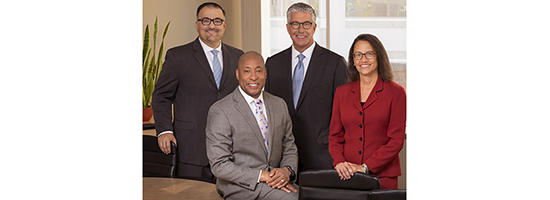On Coronavirus, United to Support Hospitals at Every Level

In the past week, the extent of novel coronavirus in our state and across the country has become more clear, and more sobering. As with many public health issues, this one is both highly complicated and rapidly evolving.
Responding quickly to daily information updates from federal and state officials, hospitals statewide have mobilized to care for their communities and protect their workers. Your associations have also mobilized — to connect with decision makers, synthesize information, press for needed public health policy shifts, and advocate for you to get the resources you need.
Coordination at All Levels
We’ve been in constant contact with hospitals and health systems that have so far been directly affected by coronavirus, making sure local and state public health departments — as well as city, county, state and federal lawmakers — understand their front-line concerns and lessons already learned. More issues will arise in the days and weeks ahead, and we’ll be staying on top of them on your behalf. Here are some of our most recent activities:
Governor’s Emergency Declaration
In a letter to California Health and Human Services Secretary Mark Ghaly, MD, earlier this week, we urged the state to shift from a strategy of containment to one of mitigation. As part of that strategy, we asked Gov. Newsom to declare a state of emergency. On Wednesday, he issued that declaration and included several of our requests as part of it: allowing the California Department of Public Health to approve suspension of health facility licensing statutes; allowing the Emergency Medical Services Authority to approve out-of-state medical personnel for work in California without additional state licensure; and allowing the Department of Social Services to permit hospitals to provide child care without a day care license.
Subsequently, the Governor announced extending disability benefits to health care workers who are unable to work due to having or being exposed to COVID-19, which we requested. We also requested a letter to health plans and insurers reminding them of their coverage obligations to enrollees suspected or confirmed to have COVID-19, and the Department of Managed Health Care and Department of Insurance have since issued those letters.
Congressional Spending Bill
We’ve also been working closely with members of the California congressional delegation, serving as a resource for information about what’s happening in our communities and calling for funds to be designated for hospitals. On Wednesday, Congress passed an $8.3 billion spending package that includes $400 million for state grants, some of which will be available to hospitals. The bill has now been signed by the President.
Also on Wednesday, in a meeting with House Speaker Nancy Pelosi, CHA President/CEO Carmela Coyle shared the impact the virus is having on California hospitals as they prepare and respond, acknowledging that, depending on the course this virus takes, more funding may be needed.
Crisis Communications
To help you share information with and respond to questions from the public, the media, staff, and your patients, we’ve retained a top crisis communications firm. They’re developing key messages and template materials that will be available for hospitals next week – including general public health messaging; website content on best practices and potential exposure; a letter providing clarity and assurance to staff; summaries of current protocols, use of personal protective equipment, testing, and prevention; and communications to help if your hospital experiences an initial case of the virus.
The crisis communications services are also available on an as-needed basis for hospitals affected by the virus. For more information about tapping into these consultants, contact CHA’s Vice President, External Affairs, Jan Emerson-Shea at jemersonshea@calhospital.org.
We know now that community transmission of novel coronavirus is upon us – and we know you stand ready to do what’s needed to mitigate its impact in your communities. In turn, we also stand ready to help. Please don’t hesitate to reach out to any or all of us for assistance or to share information.
–Carmela, George, Bryan & Dimitrios
Contact:
George W. Greene
(213) 538-0706
ggreene@hasc.org



